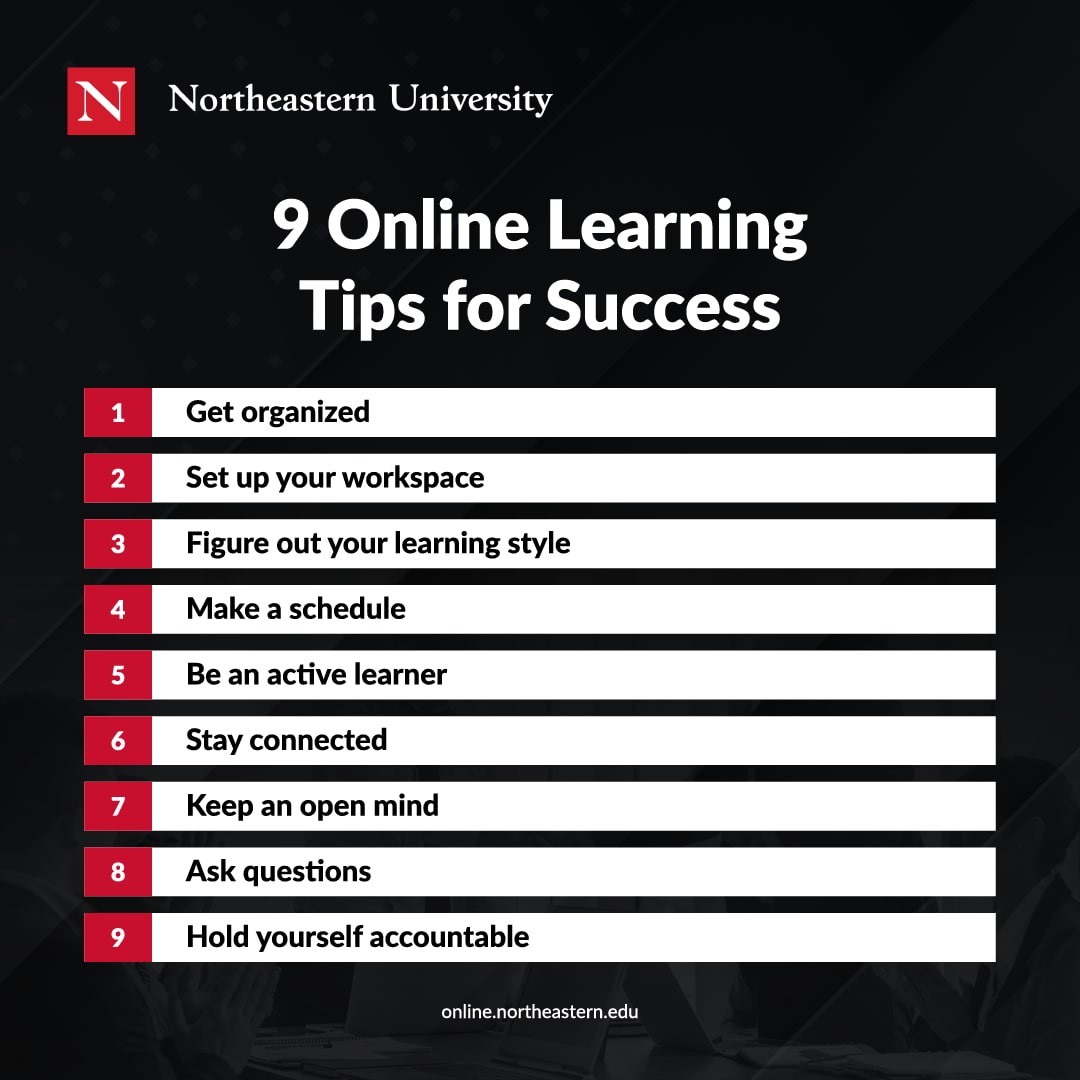The number of online learners is projected to reach 57 million by 2027. This surge in online education reflects the growing appeal of flexible learning options for career advancement, job transitions, and personal enrichment. While online learning offers unparalleled convenience, success requires a unique set of skills and strategies. This guide provides nine essential tips to help you thrive as an online learner.
Cultivating Effective Online Learning Habits
The perception that online degrees are easier than traditional on-campus programs is a misconception. Online learning demands equivalent focus, motivation, and effective time management. In fact, with potential distractions at home, online learning can often prove more challenging. By cultivating effective learning habits, you can overcome these challenges and maximize your online education experience. Key attributes of successful online students include self-motivation, strong time management skills, productive study habits, effective communication, and adaptability to the virtual learning environment.
 Woman studying on laptop in a focused environment
Woman studying on laptop in a focused environment
9 Essential Strategies for Online Learning Success
1. Organize Your Resources
Before the semester starts, ensure you have the necessary technology and resources, including reliable internet access, e-books, online tools, and access to course websites. Familiarize yourself with the online learning platform to avoid technical difficulties during class. Prepare your note-taking materials just as you would for a traditional class.
2. Establish a Dedicated Workspace
Create a dedicated learning environment that minimizes distractions. Whether it’s a quiet corner at home or a local coffee shop, consistency in your study location fosters routine and productivity. Limit interruptions by turning off notifications and using website blockers to stay focused during study sessions.
3. Understand Your Learning Style
Identify your peak productivity times and tailor your study schedule accordingly. Recognize your preferred learning style – visual, auditory, or kinesthetic – and adapt your study methods to maximize comprehension and retention. For example, visual learners might benefit from printing lecture transcripts.
4. Create a Realistic Schedule
Develop a detailed study schedule that includes specific times for reading, lectures, assignments, and participation in online discussions. Treat these scheduled blocks as seriously as you would in-person classes. Leverage time management tools and techniques to stay on track.
5. Actively Participate in the Learning Process
Engage actively with course materials, participate in discussions, and seek feedback from instructors and classmates. Proactively seeking clarification and contributing to the learning community significantly enhances understanding and knowledge retention.
6. Connect with Your Peers and Instructors
Build relationships with classmates through online forums and discussion boards. Engage in collaborative learning activities and leverage peer support for studying and assignments. Don’t hesitate to reach out to instructors with questions or concerns.
7. Embrace Open-Mindedness
Cultivate an open mind and actively engage with diverse perspectives in online discussions. The online environment allows for thoughtful reflection before contributing, fostering a more engaged and inclusive learning community.
8. Don’t Hesitate to Ask Questions
Asking questions is crucial for clarifying concepts, deepening understanding, and avoiding confusion. Utilize online forums, email, or virtual office hours to seek assistance from instructors and peers.
9. Practice Self-Accountability
Set clear learning goals and regularly monitor your progress. Establish a system for tracking assignments and deadlines. Consider partnering with a classmate for mutual accountability and support.
Conclusion: Achieving Success in Online Learning
Earning an online degree offers significant career advancement opportunities. Adapting to the online learning environment is key to maximizing your success. By implementing these nine strategies, you can cultivate effective learning habits, overcome challenges, and achieve your academic goals in the digital age. Embracing these techniques will not only help you succeed in your online courses but also develop valuable skills transferable to any professional setting.
